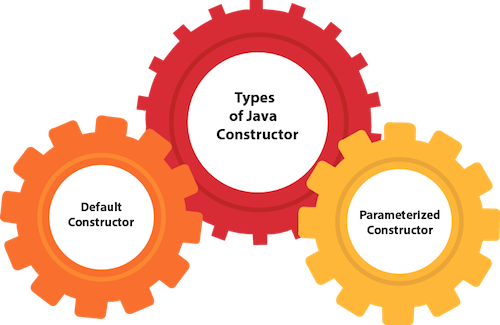Types of Constructors are used in Java

In Java, constructors can be classified into several types based on their characteristics and usage. Here are the main types of constructors used in Java:
-
Default Constructor:
- If a class does not explicitly define any constructors, Java provides a default constructor automatically. This default constructor has no parameters and initializes instance variables to their default values (e.g.,
0 for numeric types, null for reference types).
-
Parameterized Constructor:
- Parameterized constructors are constructors that accept parameters, allowing the caller to specify initial values for the object's instance variables during object creation. Parameterized constructors are useful for customizing object initialization based on user input or specific requirements.
-
Copy Constructor:
- A copy constructor is a special type of constructor that creates a new object by copying the state of an existing object. It accepts an object of the same class as a parameter and initializes the new object with the same state as the existing object. Copy constructors are used to create deep copies of objects, ensuring that modifications to one object do not affect the other.
-
Constructor Overloading:
- Like regular methods, constructors can be overloaded, meaning a class can have multiple constructors with different parameter lists. Constructor overloading allows for flexibility in object initialization, as constructors with different parameters can be used to create objects with different initial states.
-
Static Constructor (Not Supported in Java):
- Some programming languages support static constructors, also known as class constructors or static initialization blocks, which are used to initialize static variables or perform class-level initialization tasks. However, Java does not support static constructors directly. Instead, static initialization blocks can be used to initialize static variables and perform static initialization tasks.
In summary, Java supports default constructors, parameterized constructors, copy constructors, and constructor overloading. These types of constructors provide flexibility in object initialization and customization, allowing developers to create objects with different initial states based on specific requirements.
Thank you,
